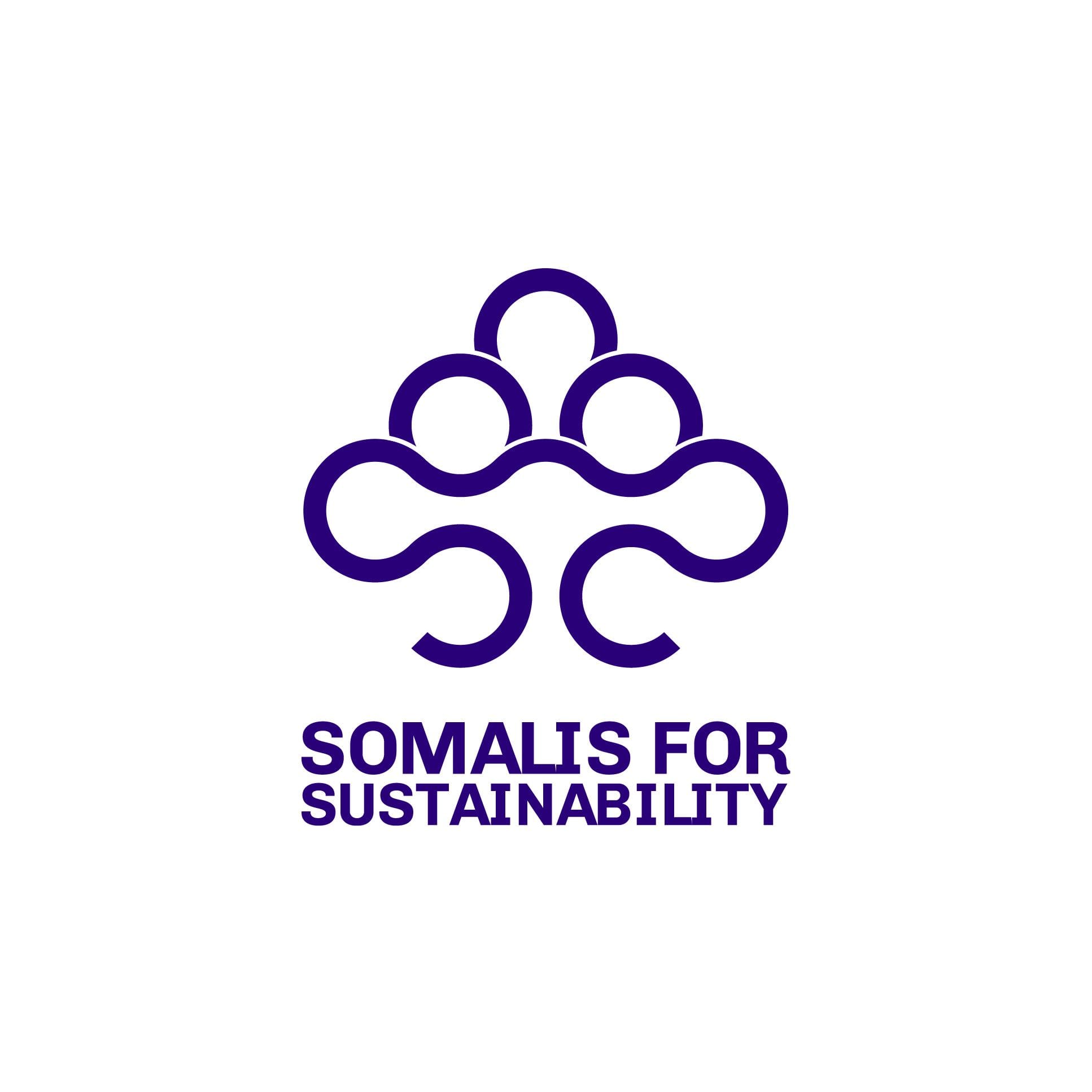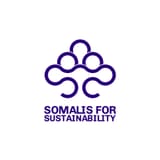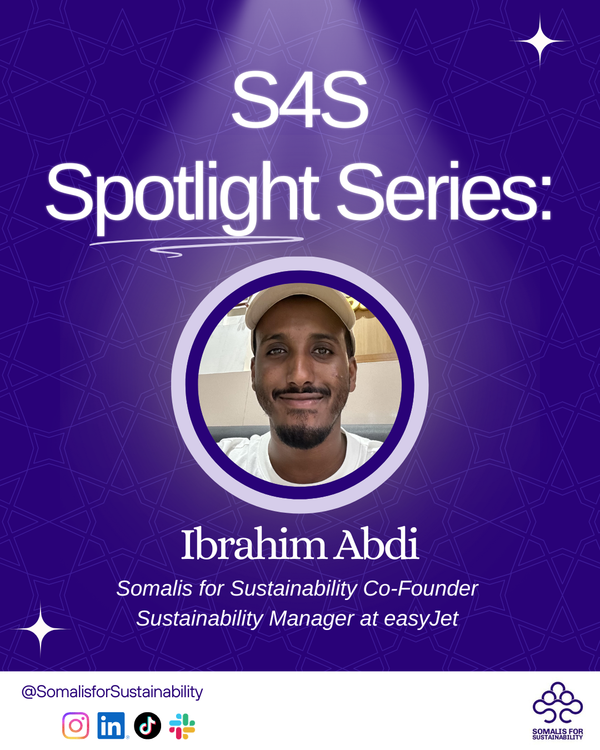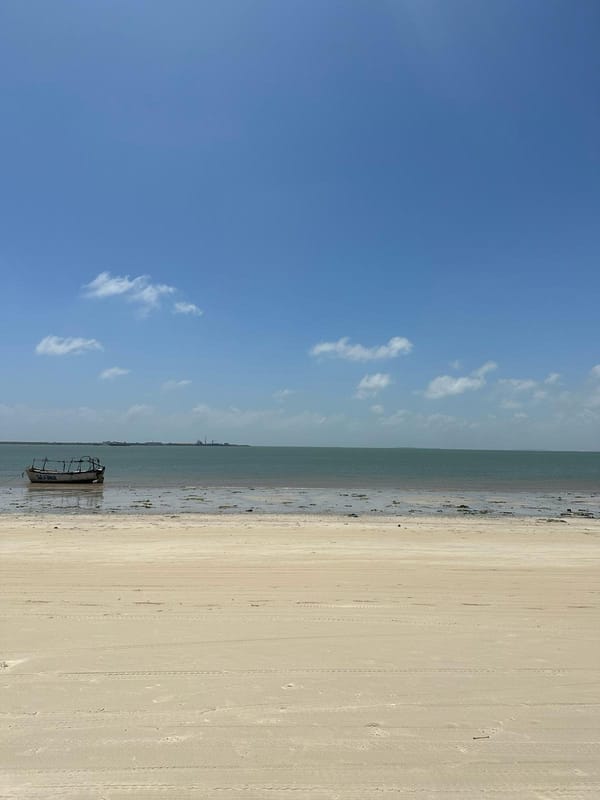Maydi Newsletter: August
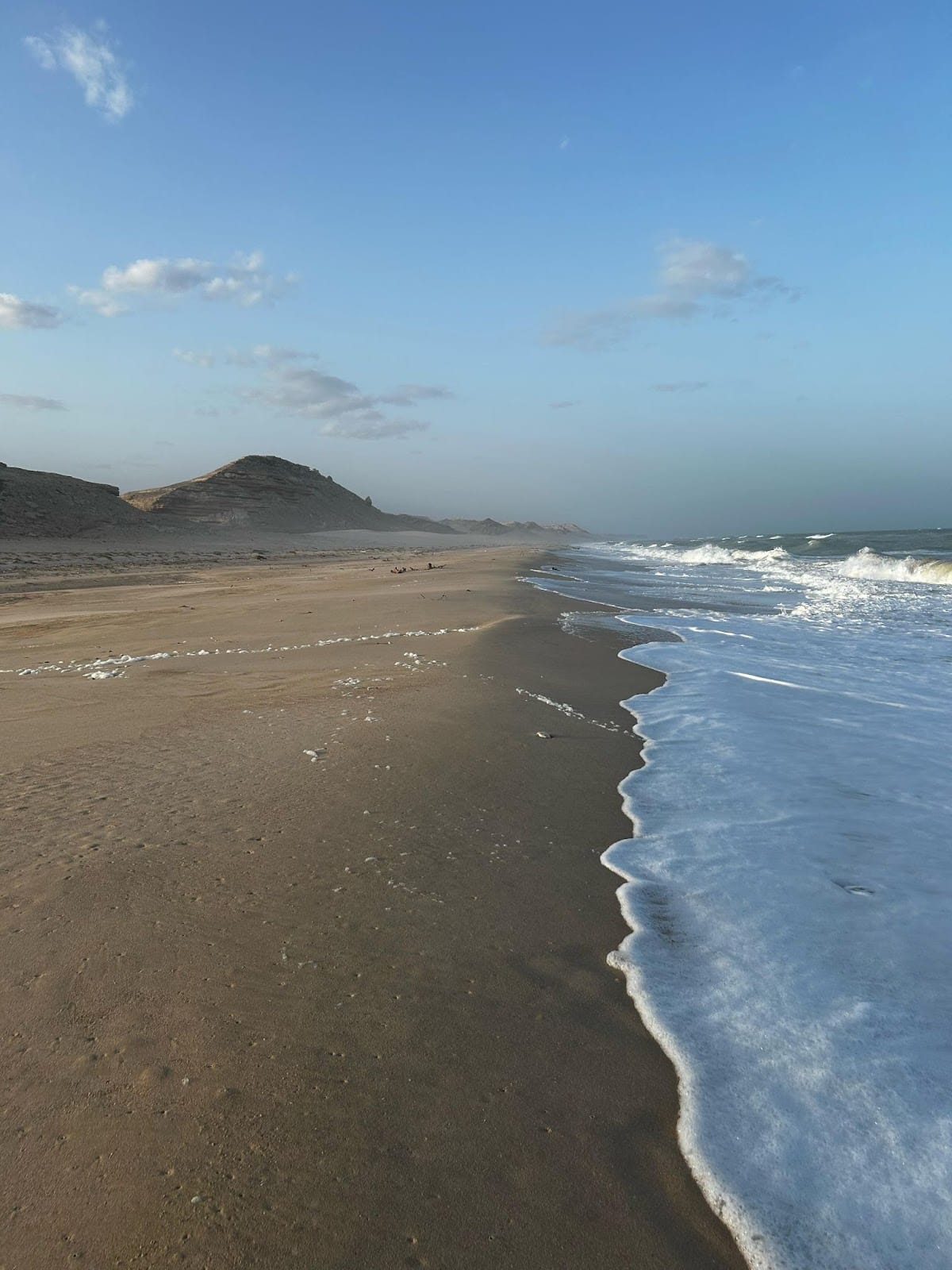
Hi everyone!
Welcome to the second edition of the Maydi Newsletter, your go-to source for the latest news and insights on sustainability in the Somali Horn and the African region. In this issue, we explore the critical challenges of climate variability, food security, and land degradation that are impacting vulnerable communities across Somalia.
You might have noticed that it's been a while since our last edition—our team took a short summer break. But don’t worry, we're back and committed to bringing you a regular monthly edition
Thank you for reading!
S4S News
Pre-Local Conference of Youth (LCOY) event
On August 10th, the Somalis for Sustainability organisation hosted a virtual gathering to address pressing issues facing Somali youth, including Climate Peace and Security, Energy, Food and Agriculture, Health, Loss and Damage, Nature and Biodiversity, Oceans and Water, as well as Reimagining and Transforming Economies. These thematic areas were the focus of the discussions, which aimed to develop the Somali Youth National Statement. Over 100 delegates from various regions of Somalia participated in the event to voice their concerns and strategies.
To facilitate the development of targeted strategies and solutions, participants were divided into breakout groups each focusing on one of these thematic areas. Guided by a set of questions, the groups explored potential approaches to address Somalia's complex challenges. The proposed solutions converged on several core strategies: youth empowerment, intergenerational collaboration, community engagement, and climate adaptation. This virtual event served as a valuable precursor to the main LCOY event held earlier this week in Mogadishu, Somalia. We’ll be sharing more details on that in our next edition.
Clean Energy Transitions Webinar
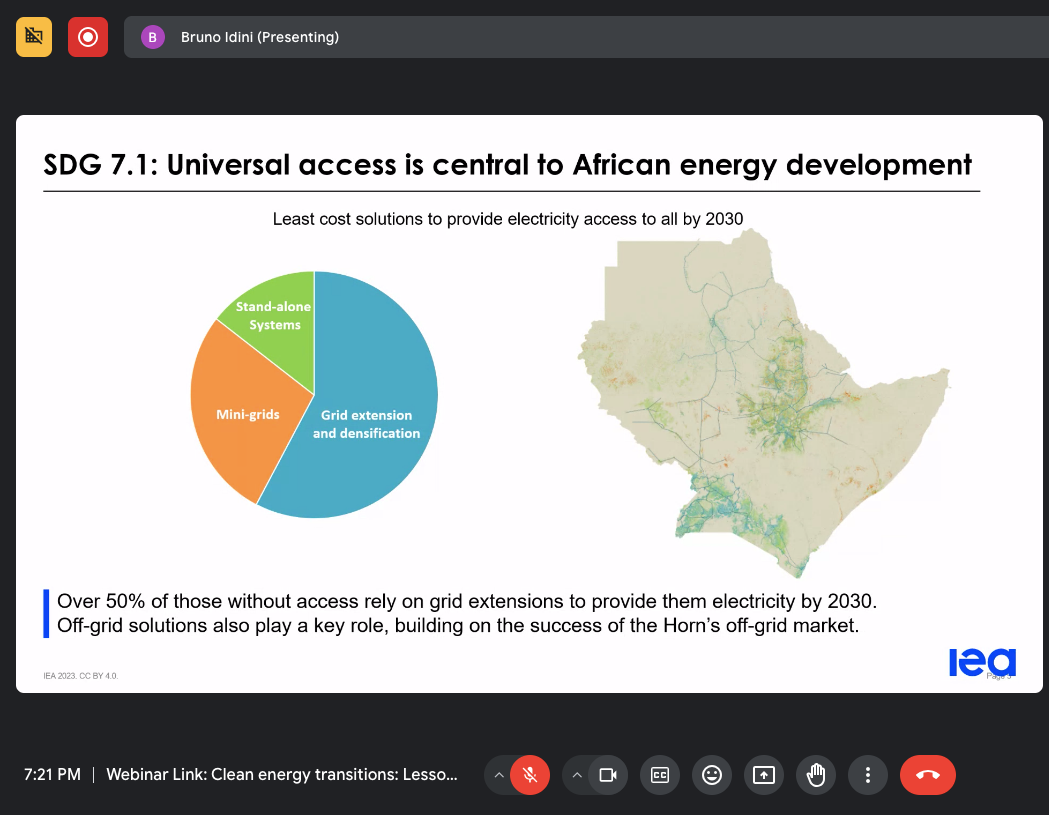
On August 21st, Somalis for Sustainability (S4S) hosted its inaugural webinar focused on clean energy transitions, featuring Bruno Idini from the International Energy Agency (IEA). The session provided valuable insights into how energy modelling can inform sustainable policy decisions, particularly for the Greater Horn of Africa. Bruno introduced three key IEA scenarios: the Stated Policies Scenario (STEPS), which predicts future outcomes based on current policies; the Announced Pledges Scenario (APS), which explores the impact of fulfilling all net-zero pledges; and the Net Zero Emissions by 2050 Scenario (NZE), which outlines the path to achieving net-zero CO2 emissions by 2050.
Despite the potential for progress, significant challenges remain, such as limited access to electricity and clean cooking solutions in the Greater Horn. Only half the population currently has electricity access, and less than 15% have clean cooking options, making universal access by 2030 unlikely under the STEPS scenario. Bruno emphasized the importance of grid expansion, mini-grid systems, and stand-alone systems in improving access and suggested that Somalia could benefit from removing import taxes on energy equipment and creating a stable environment to attract investment. He also noted the need for transparent funding mechanisms to reduce corruption and support energy equipment affordability.
The full recording of the webinar will soon be available on our social media platforms, so be sure to follow us for updates
What is the latest in the Horn?
Climate, Food, and Resilience in Somaliland
Somaliland faces several climate change-related challenges, including environmental degradation, food insecurity, water scarcity, land degradation, and desertification, all undermining its food security, resilience and overall livelihood systems. Due to Somaliland’s arid to semiarid climate and low annual rainfall, it is highly susceptible to extreme climate disasters including drought, heat stress, variable rainfall as well as flooding due to limited resources, and fragile economic and social systems, which make it difficult to effectively manage and recover from climate-related challenges.
The Integrated Food Security Phase Classification (IPC) estimated that 36% of the population in Somaliland is in crisis or worse, and approximately 839,000 children suffer from acute malnutrition, highlighting the urgent need for effective interventions. The article serves as a resource for stakeholders to reference and implement to improve and overcome Somaliland’s food insecurity. The specific objectives outlined review the level of food insecurity, the impact of climate variability on food security, and identify significant major adaptation strategies.
Key strategies for enhancing resilience include strengthening local institutions to better implement adaptation practices, promoting sustainable agriculture through climate-smart methods and drought-resistant crops, and encouraging livelihood diversification in households to reduce vulnerability. Improving water management with advanced harvesting and irrigation systems is essential for reliable water sources. Establishing early warning systems and disaster preparedness plans will improve responses to extreme weather events. Capacity building for communities and institutions is crucial, along with advocating for increased research, investment, and coordination among stakeholders to support adaptation and food security efforts.
These strategies aim to address both immediate impacts and long-term challenges posed by climate change in the region. Addressing Somaliland's climate challenges through effective adaptation and support is crucial for enhancing resilience and food security in the region.
From Degradation to Regeneration: Critical Steps for Somalia's Land 🌱
The policy brief by the Juba Institute for Climate Adaptation (Jica), an independent, non-profit policy research organisation based in Mogadishu, focused on promoting climate change adaptation and building resilience for sustainable and peaceful development in Somalia, three measures to reverse the "alarming" land degradation in Somalia are outlined. A greener environment is key to fostering sustainable and resilient communities, yet Somalia faces severe land degradation, including the loss of 8.2 million trees for charcoal production between 2011 and 2017, driven by socio-economic disparities, weak regulations, and poor land-use planning, despite progress in peace-building and economic recovery.
Several interlinked factors fuel Somalia’s severe deforestation crisis. Weak regulatory enforcement and poor land-use planning have allowed destructive practices like charcoal production to thrive, contributing significantly to forest loss. The lack of access to clean energy—affecting 85% of the population—has exacerbated the dependence on charcoal for cooking and heating. Widespread poverty, with around 70% of Somalis living below the poverty line, forces many to rely on environmentally harmful practices for their livelihood. Additionally, decades of political instability and weak institutions have further hindered efforts to implement effective environmental protections and preserve the country’s diminishing natural resources.
In this policy brief, the Juba Institute for Climate Adaptation (Jica) outlines key recommendations to address Somalia’s severe land degradation. It urges the establishment of a national regulatory body to enhance coordination and enforce environmental conservation measures, including protecting forests and rangelands. The brief also advocates for the adoption of coherent land-use legislation to eliminate destructive practices and informal settlements on rangelands. Additionally, it recommends accelerating the adoption of alternative energy sources, such as liquefied petroleum gas (LPG), by reducing import tariffs to decrease reliance on charcoal and firewood, thus promoting more sustainable energy consumption and environmental outcomes.
In other regional news 🌎
Shaping Africa’s Future: Ten-year Strategy 📈
As the African continent continues to grow economically, its journey is filled with challenges that transcend borders, affecting the entire region and beyond. The African Development Bank is committed to addressing these cross-border issues, particularly those that relate to climate change and sustainability. By focusing on global and regional public goods, the Bank aims to ensure that Africa’s growth is both inclusive and resilient.
The African Development Bank recognises that climate change is one of the most pressing challenges facing the continent. The Bank is not only supporting African countries in accessing climate finance but also prioritising investments in low-carbon development. Initiatives like the Desert to Power Initiative and the Alliance for Green Infrastructure in Africa (AGIA) are designed to ramp up renewable energy production and enhance energy efficiency across the continent.
To accelerate Africa’s climate goals, the AfDB has established green and social bond programs, channelling resources into sustainable projects. Over the past decade, these programs have mobilised over USD 10 billion, contributing to more than 100 projects aimed at sustainable development. The Bank is now looking to expand Africa’s green bond market, which currently represents only 0.4% of the global market.
The AfDB understands the importance of partnerships in achieving climate resilience. The Just Energy Transition Partnership (JETP) in South Africa exemplifies the kind of multilateral collaboration the Bank is advocating for. By bringing together various stakeholders, these partnerships aim to ensure that the transition to a low-carbon economy is both fair and equitable, especially for those most vulnerable to climate impacts.
The Bank is also enhancing its support for global and regional public goods, including climate change mitigation, public health, and food and energy security. These areas are critical for the continent’s sustainable development and are aligned with the needs and priorities of the Regional Member Countries . The Climate Action Window, part of the ADF-16 replenishment, is a key initiative providing dedicated climate finance to African countries most vulnerable to climate change.
Good governance and resilient institutions are essential for sustainable development. The AfDB is committed to strengthening these areas through various initiatives, including the Transition Support Facility, which channels resources to African countries affected by fragility. The Bank’s approach is to tackle the root causes of fragility, thereby building stronger and more resilient societies.
Somali word of the month : Buur (buu-r) ⛰️ Mountain
There are several mountain ranges in the Somali Horn such as the Almadow mountain range in the north. The Almadow Mountain range is home to some of the country’s most diverse ecosystems. Ranging from lush forests, unique flora and fauna and significant water sources. The endemic plant source species and the rare frankincense trees found here are of both environmental and cultural importance.
Enjoyed reading? If you haven't already, sign up below so you don't miss out on future content.
